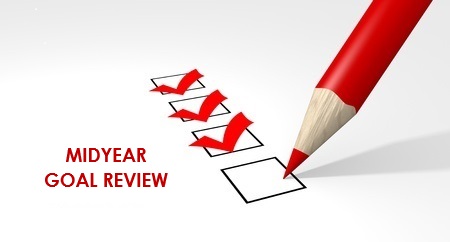We can't find the internet
Attempting to reconnect
Something went wrong!
Hang in there while we get back on track
Mastering the Art of Candidate Assessment: Best Practices for Recruitment Managers
Our Article Full Details

Mastering the Art of Candidate Assessment: Best Practices for Recruitment Managers
The art of candidate assessment is not just a process; it's a skill that can shape the future of your organization. It's not just about reviewing CVs; it's about deciphering the unique qualities that each candidate brings to the table.
Let’s explore the best practices that as a recruitment manager you can adopt to master the art of candidate assessment and build high-performing teams.
Cultivating a Holistic Evaluation Approach
Gone are the days of assessing candidates based solely on their technical skills. As a recruitment manager, your role extends beyond scrutinizing CVs. It's about understanding the essence of each candidate—their soft skills, cultural fit, and potential for growth within the organization.
For example, if you're hiring for a customer-facing role, assess not only communication skills but also the candidate's empathy and ability to navigate challenging situations. A holistic evaluation provides a more nuanced understanding of a candidate's suitability for the role.
Crafting Tailored Assessment Methods
Recognize that one-size-fits-all doesn't apply to candidate assessment. Tailor your methods to align with the specific needs of the role and the values of your organization. From situational judgment tests to skills assessments and behavioural interviews, a combination of methods ensures a comprehensive evaluation.
Consider incorporating role-specific scenarios in the assessment process. If you're hiring for a project management position, present a scenario that mirrors a real challenge the team might face. This allows candidates to showcase not only their technical skills but also their decision-making abilities.
Leveraging Behavioural Interview Techniques
As a recruitment manager, you should understand that behavioural interviews are powerful tools when it comes to candidate assessment. Dive into a candidate's past experiences to predict future performance. Encourage candidates to share specific examples of how they've handled challenges, collaborated with teams, or demonstrated leadership.
For instance, inquire about a time when a project didn't go as planned and how the candidate navigated through it. This not only provides insight into their problem-solving skills but also their adaptability and resilience.
Utilizing Technology for Efficient Screening
Efficiency is key, and technology can be your ally. Applicant tracking systems, video interviews, and AI-driven assessments can streamline the initial screening process. This not only saves time but also allows you to focus on the more nuanced aspects of candidate evaluation.
However, it's essential to maintain a balance. While technology can assist in the initial stages, your expertise remains crucial, especially in assessing cultural fit and soft skills that may not be easily gauged through automated processes.
Ensuring Diversity and Inclusion in Assessment
Diversity and inclusion should be woven into the fabric of candidate assessment. As a recruitment manager,you are at the forefront of promoting diversity and inclusion. Implement blind resume screening, diverse interview panels, and standardized evaluation criteria to ensure a fair and inclusive assessment.
Challenge your team to consider a diverse pool of candidates for every role. This not only fosters a more inclusive workplace but also brings a variety of perspectives and experiences to the table, contributing to innovation and creativity.
Continuous Learning and Improvement
Your journey in mastering candidate assessment is an ongoing process. Gather feedback from your hiring team, analyse the success of new hires, and assessment methods. Regularly review and update evaluation criteria based on evolving organizational needs and industry trends.
For example, if you notice a trend of successful candidates demonstrating a specific skill or attribute, consider incorporating that into your assessment criteria for future hires.
Mastering the art of candidate assessment is a journey of refinement and adaptability for recruitment managers. By embracing a holistic approach, crafting tailored assessment methods, leveraging behavioral interviews, utilizing technology, ensuring diversity and inclusion while committing to continuous learning, you can elevate talent acquisition to new heights.
In the competitive landscape of talent acquisition, those who master the art of candidate assessment become not just evaluators but architects of high-performing teams that drive organizational success.
Prev
Managing Multigenerational Teams: Strategies for Executive Leaders
Next
Innovative Leadership: How You Can Drive Creativity and Change





